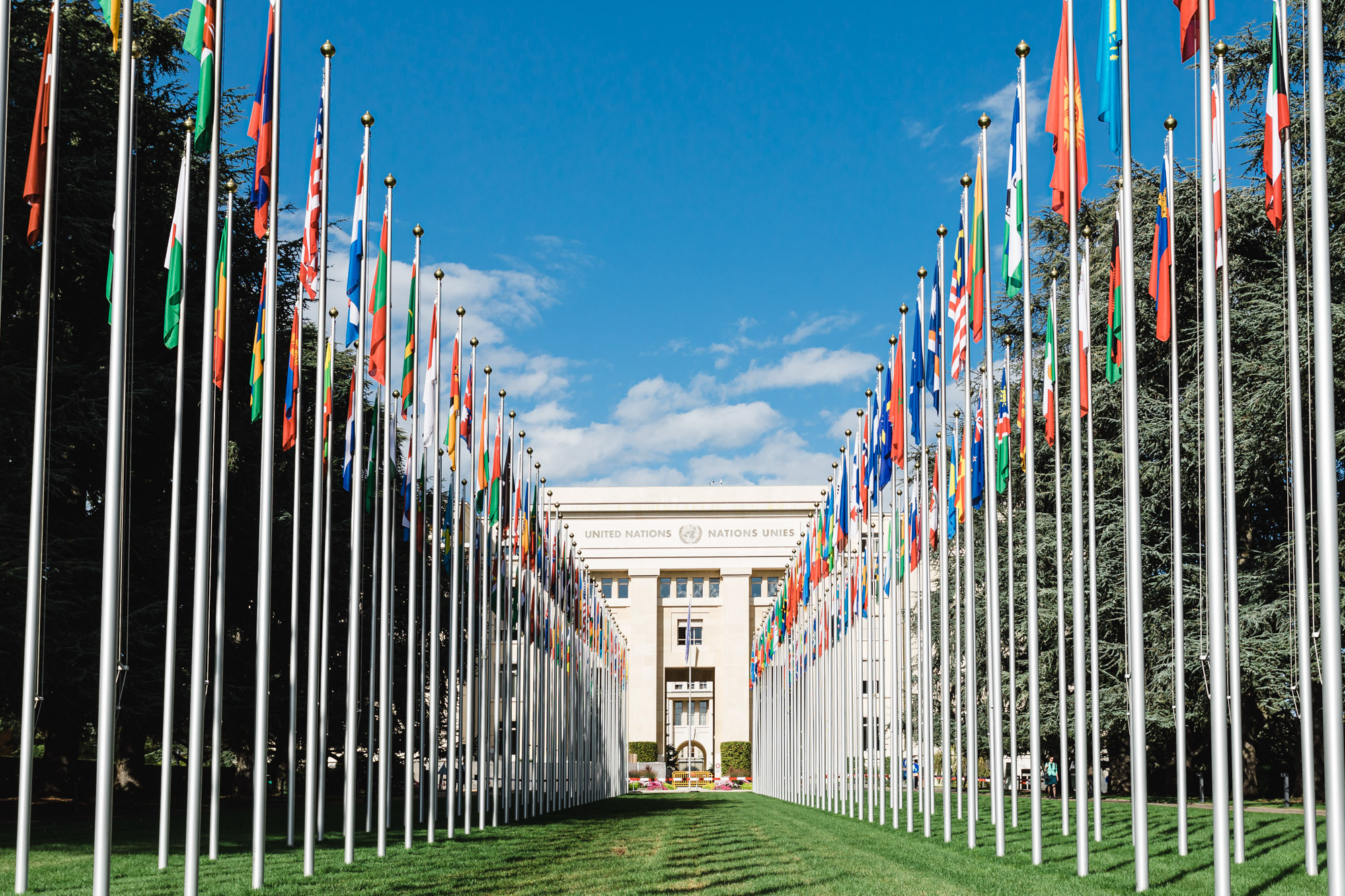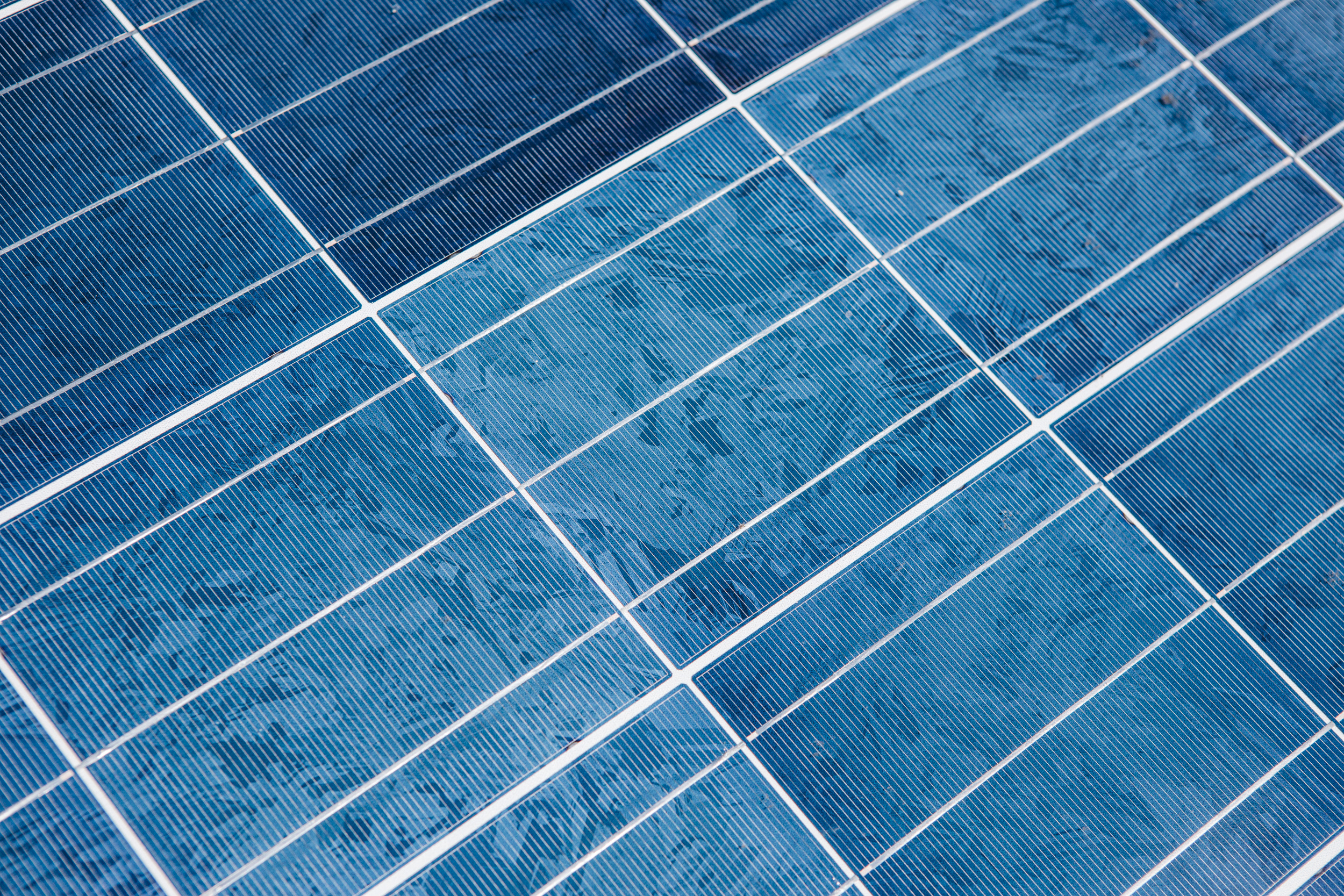The United States’ climate negotiation strategy for Glasgow COP26. New perspective on decarbonising the global energy system. The Climate Transparency Report 2021: Comparing G20 climate action towards net zero. Decarbonising Asia’s transport sector. Momentum on climate adaptation. How to decarbonise international shipping and aviation. Carbon Contracts for Difference. Discover these and more online events of the week!
You can also subscribe to Climate Online’s newsletter to be reminded about weekly event updates by e-mail:

Climate Science, Policy & COP26
12 October, 11:30 – 13:00 CEST
“Sectoral Pathways for a Net-Zero Future for India: Implications and Feasibility” by Council on Energy, Environment and Water – CEEW
In the run-up to COP26, we will discuss the implications and feasibility of alternative net-zero scenarios for India, the economic and sectoral milestones required for their foundation, the way forward on policy directions and decisions, and the challenges and opportunities in achieving carbon neutrality. This session will also mark the launch of a working paper, ‘Implications of a net-zero target for India’s sectoral energy transitions and climate policy’.
12 October, 18:00 – 19:30 CEST
“COP26 and the Climate Opportunity for Latin America and the Caribbean: Unlocking Finance and Nature-Based Solutions” by World Resources Institute – WRI and Inter-American Development Bank – IDB
Latin America and the Caribbean is one of the most susceptible regions in the world to the impacts of climate change. It is also the region hit hardest by COVID-19. However, it also has some of the planet’s most abundant natural resources and ripe potential to power its recovery and economic growth through a green transition. With COP26 fast approaching, WRI and IDB invite you to a virtual event on how Latin America and the Caribbean can advance critical Paris Agreement goals and use climate-change action to accelerate development when the region needs it most. A report launch and panel discussion will follow on nature-based solutions (NBS), which could account for 40% of the reduction in carbon emissions needed to limit global warming to less than two degrees Celsius by 2030.
12 October, 23:00 – 13 October, 0:00 CEST
“The United States’ climate negotiation strategy for Glasgow COP26” by Harvard Kennedy School
To avoid an irreversible climate catastrophe, representatives from over 200 countries and NGOs will gather in Glasgow this November to negotiate a global plan of action. With wildfires in Siberia, floods in Germany, and heat waves around the world, climate change is no longer some distant threat – it is causing devastating harm to people, communities and the natural world. The urgency is clear, but countries have very different views on how to move forward. In this speaker series, global climate leaders will discuss the negotiation strategies of developing nations, India, China, the U.S. and the EU. Join the Center for Public Leadership for a discussion on climate negotiations with Dan Reifsnyder, co-chair to the Paris Climate Negotiations and former U.S. Deputy Assistant Secretary for Environment.
12 October, 23:00 – 13 October, 0:00 CEST
“The Potential of Artificial Ocean Upwelling and Downwelling in Carbon Dioxide Removal” by Institute for Carbon Removal Law and Policy and Northwestern University
Artificial Ocean Upwelling refers to approaches that seek to boost primary production of marine organisms that take up carbon dioxide, including phytoplankton and macroalgae, by moving nutrient-rich waters upward in the water column. This webinar will examine the prospects for two potential ocean-based carbon removal approaches, artificial ocean upwelling and downwelling, to effectuate large-scale sequestration of carbon dioxide.
13 October, 10:00 – 12:00 CEST
“Carbon Contracts for Difference (CCfD)” by European Roundtable on Climate Change and Sustainable Transition – ERCST
This new work stream aims to bring together stakeholders, including policymakers and industry on a regular basis to discuss substantive issues around this topic, informed by original intellectual input from ERCST.
CCfD are being discussed as one of the most promising options to foster the deployment of low-carbon industrial technologies. CCfD are one way to minimize the revenue uncertainty attached to investments in low-carbon technologies, such as renewable and low-carbon hydrogen, which are still not cost competitive with other more polluting production pathways.
13 October, 14:00 – 15:00 CEST
“Climate Change Litigation in Numbers” by Florence School of Regulation – FSR
Climate change litigation has gained an unprecedented growth in importance in the last five years, which high visibility reached by recent judgments such as Milieudefensie v. Shell case. Globally, the cumulative number of climate change-related cases has more than doubled since 2015. Just over 800 cases were filed between 1986 and 2014, while over 1,000 cases have been brought in the last six years. How many cases have been brought to court throughout time? Who are the key players bringing these disputes into court? Who are the other parties who have figured as defendants – e.g., governments, energy companies? How different are the strategic litigation of these cases? And how courts around have decided them so far?
13 October, 16:00 – 17:30 CEST
“Long-term Strategies: Lessons Learned and Shaping a COP26 Decision” by World Resources Institute – WRI
Join the event to gain key insights into Parties’ long-term strategies. Drawing on new WRI research, experts will examine the plans submitted thus far and how they can drive ambitious national climate action in the near-term and help deliver on net-zero emission goals. Government representatives will share the political challenges and opportunities that informed how they developed their plans; other speakers will emphasize the importance of adopting a decision at COP26 that calls for countries to pursue robust long-term strategies in the years ahead. The webinar will also showcase updated tools on Climate Watch for policymakers and stakeholders to track and compare long-term strategies at any time.
14 October, 14:00 – 15:00 CEST
“The Climate Transparency Report 2021: Comparing G20 Climate Action towards Net Zero” by Climate Transparency
This webinar marks the official launch of the Climate Transparency Report 2021. It represents a unique opportunity to learn more about key findings of G20 climate action by the report’s authors and get regional and political insights from our country partners. Developed by experts from 16 partner organisations from the majority of the G20 countries, the report informs policy makers and stimulates national debates. Thanks to comparable and concise information presented in a visually attractive form, the Climate Transparency Report serves as a useful reference for decision makers and actors, and also for those central for climate for whom climate is not central.
15 October, 19:00 – 20:30 CEST
“Momentum on Climate Adaptation” by Environmental and Energy Study Institute – EESI
Climate adaptation is one of the priority work areas for COP26. This briefing will focus on the initiatives launched or scaled up in recent years that underpin the momentum on adaptation and resilience and that will inform conversations at COP26. Speakers will discuss national adaptation plans, country dialogues on adaptation, early-warning systems, and locally-led adaptation. The briefing will explore how these efforts advance work towards the global goal on adaptation ‘to enhance adaptive capacity and reduce vulnerability.’

Renewables & Energy Transition
11 October, 16:00 – 17:00 CEST
“Electricity Markets Assessment: Europe & the US” by International Association for Energy Economics – IAEE and Florence School of Regulation – FSR
Open markets for electricity in Europe and the US are approaching the age of 30. Their diversity, be it at the wholesale or the retail level, has never reduced significantly and no common model ever emerged on both sides of the Atlantic Ocean. Nor it did anywhere else. This webinar represents an opportunity to review all the fundamentals needed to have the electricity markets working; and to assess all the key options among which companies, authorities, or the political economy can choose as a first, a second or a third best… always for a “good reason.” This fascinating debate, always half rational and half self-interested, has restarted to boil since a few years due the spectacular growth of renewables, demand response, storage, and so on and so forth.
12 October, 8:00 – 10:00 CEST
“Decarbonising Asia’s Transport Sector – How to deliver on Goal 1a of the Aichi 2030 Declaration” by UNCRD, GIZ and Slocat Partnership
This event invites national policy makers from EST Member countries and selected international transport experts to jointly discuss how to deliver on goal 1a of the Aichi declaration. The event will start with a vision for fully decarbonising transport by the Council for Decarbonising Transport in Asia and introduce futures thinking as a powerful new approach to policy development. The event will: (1) discuss approaches to developing country-specific visions and roadmaps for zero carbon transport systems; (2) share real-world cases for translating transport decarbonisation roadmaps into action; (3) help to understand which EST countries would be interested in developing a decarbonisation strategy for their transport sectors.
12 October, 12:00 – 13:00 CEST
“Offshore wind as a cornerstone of the European Green Deal – The potential in upscaling production and utilization” by Fraunhofer-Gesellschaft
Renewable offshore energy is of utmost importance for Europe to become the first climate-neutral continent until 2050. In November 2020, the EU-Commission published the EU strategy on offshore renewable energy to harness the full potential of the ocean without emitting greenhouse gases. The strategy envisions EU leadership in that sector and sets ambitious targets for growth, regional cooperation, legal frameworks, innovation and investments. The main goal: to reach 60 GW by 2030 and 300 GW by 2050 in European offshore capacity. To make this possible, the EU needs to increase the effort in R&D for offshore wind to mitigate risks and to allow large-scale energy production offshore. During the event, experts will highlight the needs and potentials in the field of wind energy technology and energy system technology to reach the EU’s ambitious goal.
12 October, 12:00 – 13:30 CEST
“EU Member States driving the green energy transition – Best practice investments, policy reforms and transparent decision processes” by Agora Energiewende
This online session aims to empower national-level stakeholders to play their part in ensuring a vivid debate around the best path towards net zero in Europe. The event will present the perspective of EU Member States and of key clean transition stakeholders at national and EU levels, topical research on climate investments/finance as well as best practices.
12 October, 14:00 – 17:00 CEST
“International Conference on Sustainable Heating & Cooling” by International Energy Agency – IEA
The conference is organized in two panel discussions discussing in one hand the global trends and experiences and on the other hand the context in Chile. The conference will build upon the Heating & Cooling Strategy, by developing an understanding of the challenges identified within it and the range of sustainable solutions for the sector, to achieve carbon neutrality and enhance the quality of life of the Chilean people.
12 October, 17:00 – 18:30 CEST
“A new perspective on decarbonising the global energy system” by University of Oxford
In their report ‘A new perspective on decarbonising the global energy system’, published in April this year, authors drew on over a decade of research on probabilistic cost forecasting methods shown to make reliable predictions when empirically tested on more than 50 technologies. These methods are employed to estimate future energy system costs which show that, compared to a fossil-fuel-based system, a rapid green energy transition will likely result in overall net savings of many trillions of dollars.
13 October, 10:30 – 11:30 CEST
“2021 World Energy Outlook” by International Energy Agency – IEA
The World Energy Outlook (WEO) is the energy world’s most authoritative source of analysis and projections. This flagship publication of the IEA has appeared every year since 1998, and its objective data and dispassionate analysis provide critical insights into global energy supply and demand in different scenarios, and what they mean for energy security, climate targets and economic development. With the pathway set out in the IEA’s recent Roadmap to Net Zero by 2050 providing an integral part of the analysis, WEO 2021 is designed to serve as a handbook for the COP26 Climate Change Conference in Glasgow at this vital moment for the clean energy transition and climate action. Watch live broadcast of the event here:
13 October, 11:00 – 12:30 CEST
“Scaling up biomethane on the pathway to a net-zero future” by World Bioenergy Association
Biomethane is among a leading range of low carbon solutions which needs an accelerated scale up to match these ambitions. According to the International Energy Agency´s Net-zero Emissions by 2050 scenario, globally biomethane needs to grow more than eight-fold in the next ten years. In this context, this webinar aims to showcase the latest global developments and best practices in the field of biomethane, covering new market trends, innovative polices and technology advances.
13 October, 13:00 – 14:00 CEST
“How to decarbonise international shipping and aviation” by Transport & Environment
Shipping and aviation together represent around 6% of the world’s emissions, but the vast majority of these emissions go unregulated, in spite of the world’s pledge to address the urgent threat of climate change. The Paris Agreement stipulated that Parties should make “economy-wide absolute emission reduction targets”, yet so far only the EU has accounted for aviation emissions in its climate plan – NDC in Paris Agreement jargon – and no state has included international shipping. Transport & Environment has commissioned legal analysis of the Paris Agreement to analyse this omission, which will be discussed in the event.
13 October, 15:00 – 17:00 CEST
“Renovate Europe Day 2021: Next decade of action on renovation” by Renovate Europe
Join this digital High-level Conference launching the Exclusive REC / E3G Study #Renovate2Recover, assessing the transformational impact of the National Recovery and Resilience Plans (NRRPs) for buildings in Europe, hear from Ministry Representatives about the key aspects in their country’s plans and discuss with MEPs and Ministry Representatives on what needs to happen in the next decade to boost building renovation.
14 October, 18:15 – 20:00 CEST
“Globalizing Oil, Unleashing Capital: An International History of the 1970s Energy Crisis” by Harvard Kennedy School
How did the 1970s Energy Crisis reorder the world? Until 1973, successive U.S. administrations had relied on Venezuela and Canada as the country’s main energy partners and had actively restricted oil imports from the Middle East. However, with the promise of Saudi petrodollars inflows, the United States ended these longstanding partnerships and tied its economic fate to that of the Persian Gulf. This shift had long-lasting consequences: Not only did the United States make itself vulnerable to the Arab oil embargo, but this First Oil Shock gave rise to the world’s current monetary architecture, entangled the United States geopolitically in the Persian Gulf, and destabilized the Middle East by spawning the Iranian and Iraqi nuclear programs.

Sustainability & Circular Economy
11 – 14 October
“OECD Forum on Green Finance and Investment” by OECD
This pioneering annual event convenes leading actors across the green finance community to help catalyse and support the transition to a green, low-emissions and climate-resilient global economy. Join leading global actors in the financial industry, policymaking, academia and civil society to advance the global agenda. Check agenda of the event here.
13 October, 15:00 – 16:30 CEST
“Building Natural Connections: Unlocking social value” by University of Cambridge and Make Architects’ Future Spaces Foundation
Two-thirds of the global population will live in cities by 2050, yet most urban spaces are not created with human wellbeing as their goal. The built environment must deliver better social outcomes, such as reducing socioeconomic inequalities, enhancing access to nature, supporting food security, and prioritising health and wellbeing. How can we engage all parties early in the design process on this front? How do we draw on communities’ experiences and embrace social value in practice to learn from each other? How can we measure these outcomes?

